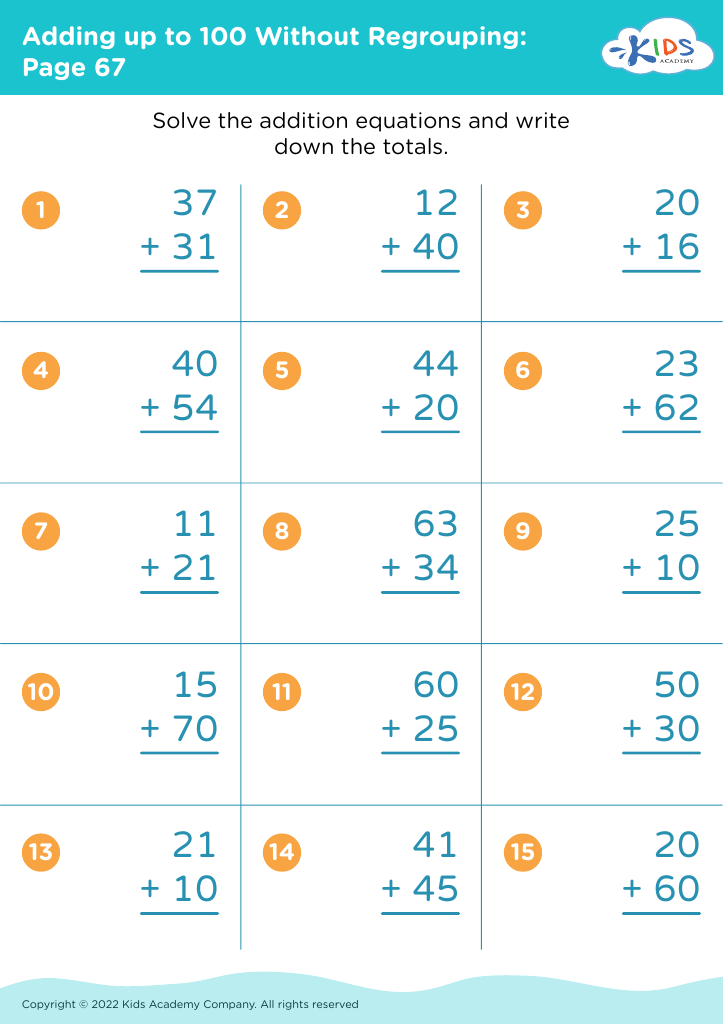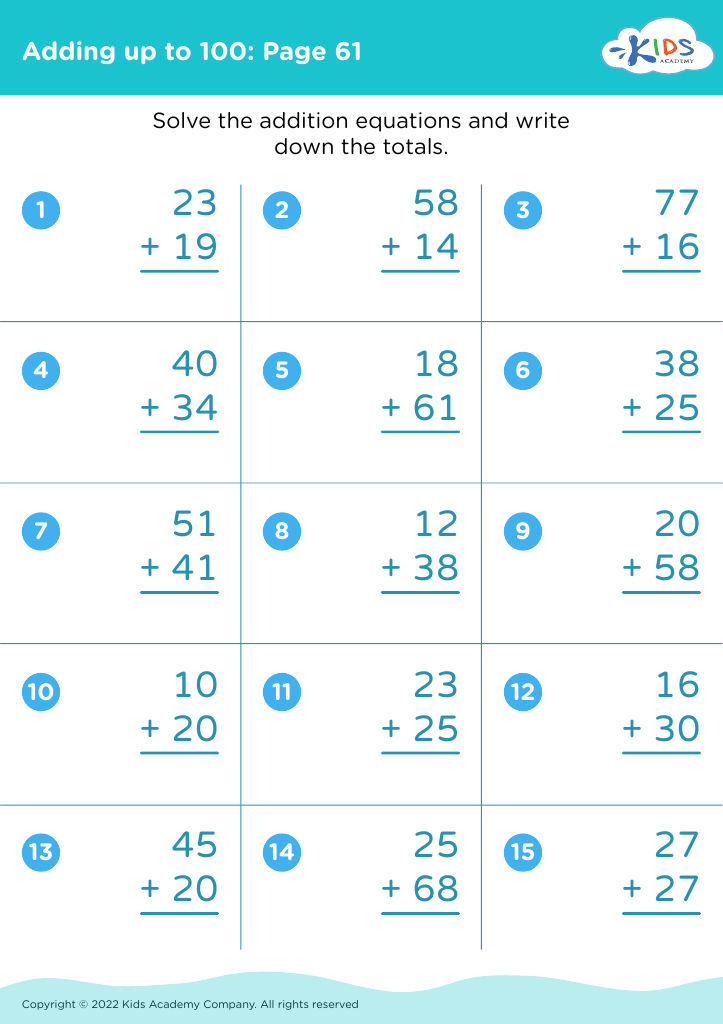Cognitive Development Adding up to 100 Worksheets for Ages 6-7
4 filtered results
-
From - To
Unlock your child's potential with our "Cognitive Development Adding up to 100 Worksheets for Ages 6-7". Designed for young learners, these engaging worksheets enhance essential math skills by introducing addition problems that sum up to 100. As children solve these problems, they sharpen their analytical and problem-solving abilities, crucial for cognitive growth. Through consistent practice, they gain confidence and become proficient in understanding and working with numbers. Perfect for classroom use or at-home learning, these worksheets are an excellent resource for making math fun and accessible. Foster your child's intellectual development with our expertly crafted learning materials.
Cognitive development at the age of 6-7 is a critical phase that substantially sets the foundation for a child's success in school and daily life. One key milestone during this period is learning to add numbers up to 100. This skill is more than just a classroom requirement; it's an essential component of numeracy—one of the most important facets of cognitive growth.
Firstly, mastering addition up to 100 helps children establish strong arithmetic skills, which are crucial for future learning in math and science. It enhances their ability to grasp more complex mathematical concepts, such as subtraction, multiplication, and division. This kind of sequential learning fosters logical thinking and problem-solving abilities.
Secondly, cognitive development in math contributes to improved memory, concentration, and analytical skills. When children practice adding smaller numbers, they engage their brain in multiple processes such as recognition, information processing, and retrieval of facts. This not only helps them with other subjects but also in daily life activities like making purchases or understanding time.
Finally, attainment in this area boosts a child's confidence, contributing to their overall emotional and psychological well-being. Feeling capable in their skills provides a strong sense of accomplishment and encourages a positive attitude towards learning.
Thus, both parents and teachers play a pivotal role in nurturing cognitive development in early ages to prepare children for future academic challenges and everyday problem-solving.








%20(1).jpg)










